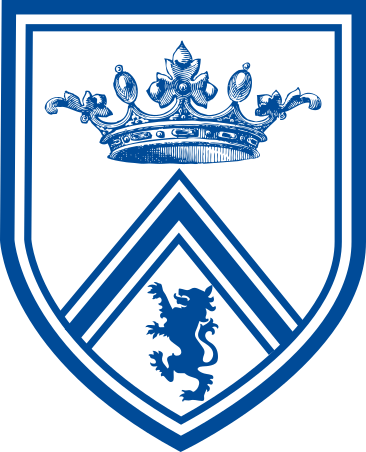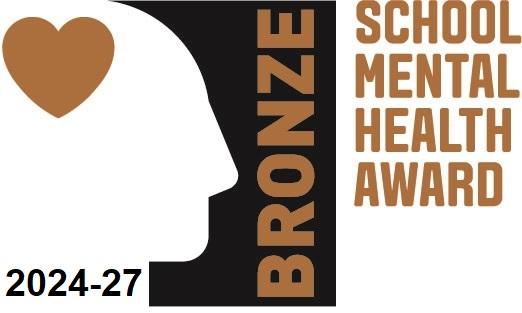COMPUTER SCIENCE
Please click on the links below:
Computer Science Long Term Plan
KS3-4 Computer Science Learning Journey
KS5 Computer Science Learning Journey
Computer Science Recommended Reading
What is Computer Science about?
“The computer was born to solve problems that did not exist before.” — Bill Gates
Education should help you find employment and fulfilment in a rapidly changing ethos. Computer Science provides pupils with an understanding of how the digital world works and how to adapt with the rapid change. With Computer Science, pupils are equipped with skills which help to prepare them for jobs that don’t yet exist.
What do we teach in Computer Science and why?
Pupils will learn about real world impact of computer systems on individuals, organisations and society. It is also a creative subject, combining invention and excitement. We aspire to helps students develop problem-solving skills, design and program systems and understand the power and limitations of human and machine intelligence, so that they can be part of shaping the future. Our curriculum has been designed to visit seven key domains throughout their journey: Algorithms, Programming constructs, Problem solving, Networks, hardware, Data representation and Digital literacy. Having a strong understanding of all seven domains will allow for confident computer scientists, ready to tackle real would issues computationally.
- Our curriculum has been developed to allow student to build on the foundations taught at KS2. As students’ progress through Kingsmead, we will revisit and expand on their current knowledge and help build and deepen their understanding. This helps to build the foundations needed, should students decide to take Computer Science as a GCSE Option.
- Naturally Computer Science is a challenging subject, as its new and constantly evolving. We aim to teach students to be ready to solve problems that don’t yet exist. In order to support their learning, we model with examples, make help videos for students to watch and following in their own time, make good use of online platforms such as Microsoft Teams and SharePoint so that students can also learn from home, finally we provide students with knowledge organisers to help aid understanding of key concepts to support revision.
- To support students understanding of key terms, we focus on using the correct vocabulary in our lessons. Our assessments test student’s ability to spell key technical terminology and apply it extended writing pieces. We also get students to present research to their peers, or model good practice, allowing them to work on their communication skills.
- Courage - One of the biggest challenges of Computer Science is being able to find a possible solution to solving a problem. We often discuss challenging content, such as ethics, legislation and cultural issues. We challenge students to show courage to discuss and explain their opinion.
- Nurture – One of the aims of the department is to nurture student’s curiosity. We do this by going above and beyond the curriculum. Computer Science develops every day, and we encourage students to read about current trends and share their curiosity with their peers.
- Collaboration – All problems can be made simpler if decomposed and shared with others. This is something we promote in our subject, as it’s also something that is done daily in the industry. We encourage students to work together to solve problems and to challenge each other.
- Rigor – Computer Science is a challenging subject. Students are expected to learn new number systems, read and write algorithms and think about problems that don’t exist yet. In order to be successful, students need to be rigorous, and keep improving on their first outcomes. Technology constantly iterates and improves on previous ideas, because things can always improve. This is what we inspire our students to do with their own work and ideas.
- how it addresses the main barriers that we have identified in our students
What does the Computer Science enable our students to do?
- Students will show an understanding of how to use algorithms to solve problems
- Students can use a computer program to write code
- Students can use Mathematical and logical concepts to solve problems
- Students will show an understanding of the different networks and how they communicate
- Students will show an understanding of different security issues and how to deal with them
- Students can explain the different hardware in computers and how they work together
- Students can evaluate real world issues by using personal experience and real-life examples.
How is the curriculum structured in Computer Science?
At KS3, Computer Science is a compulsory subject that is studied one hour a week. Should students wish to continue their journey into KS4 (GCSE, OCR J277), students will receive 3 hours a week of Computer Science lessons. The GCSE is split into two exam papers, both worth 50%. Students will also be exposed to a 20 hour programming project to demonstrate their skills in analysing, designing, implementing, testing and evaluating a computational problem. KS5 (Full A-Level, OCR H446) students will receive 5 hours of lessons a week. The A-Level is split into three. Two exams worth 40% each and coursework worth 20%. For their coursework, students have the freedom to create a complex programming project of their choice.
What specifications do we follow?
GCSE: OCR (J277)
A-LEVEL: OCR H446A
What are the links between Computer Science and other subjects?
Computer Science is naturally born from mathematicians, and therefore has a lot of links to Mathematics. From looking at different base systems (binary and hexadecimal) to Boolean algebra. One of the biggest advancements in Computer Science happened at Bletchley Park during the second world war. This therefore has links with what students learn in History. Computer Science and business also have many links such as financial modelling, legislation on handling data, and how data analysis is done to “mine” customer data in order to increase profits. Finally, it also has a lot of links with the Sciences. Especially physics, were students learn about logic circuits and gates.
Computer Science can also count towards of the Sciences needed to achieve the English baccalaureate (EBacc).
What are the future careers students can take when they study Computer Science?
Computer scientists have excellent graduate employment prospects, with higher than average earning potential. Every industry uses computers, so naturally computer scientists can work in any. Problems in science, engineering, health care, and so many other areas can be solved by computers. Common roles for graduates include computer programmer, software designer and engineer, financial analyst, scientific researcher, data analyst, games designer, network manager.
What extra-curricular activities can students take part when you study Computer Science?
Coding Clubs, trips to the national museum of Computing (Bletchley Park), Competitive games club.








